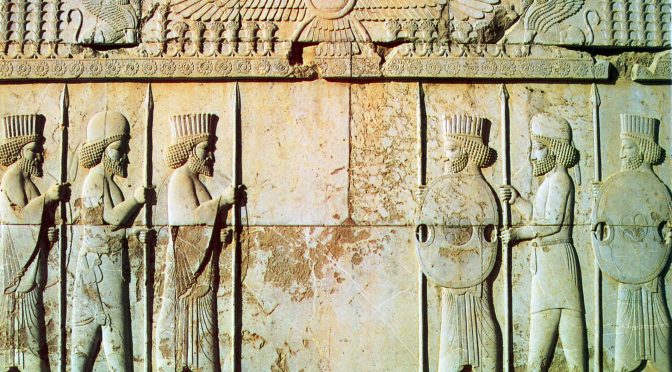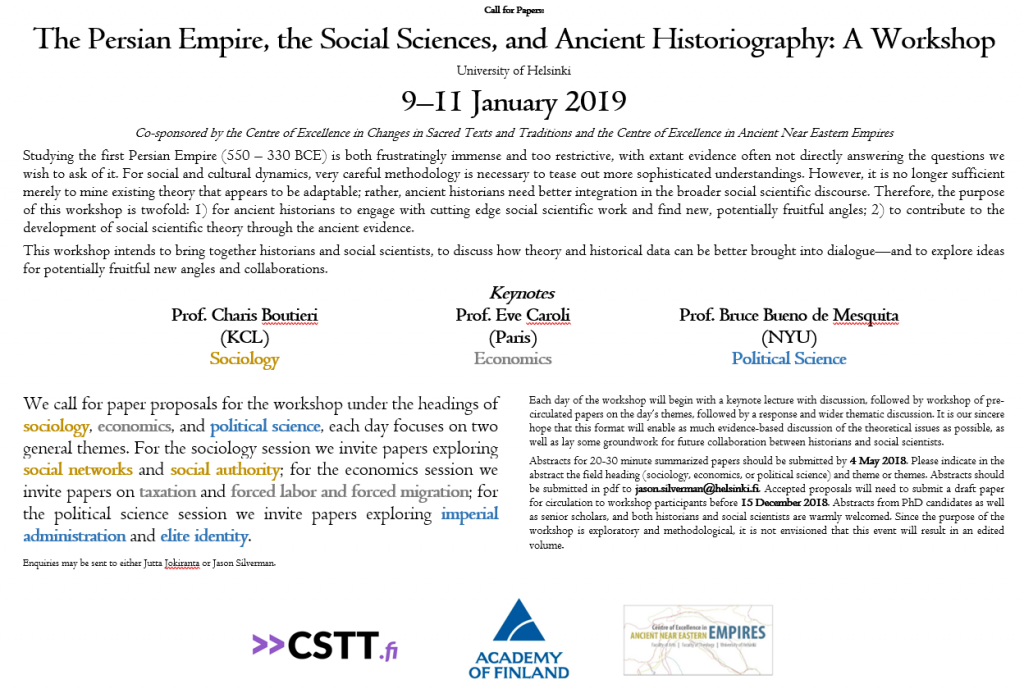The call for papers for the conference “The Strange and the Familiar: Identity and Empire in the Ancient Near East”, University of Helsinki, August 22-29 (2019) is now open!
This conference analyzes the interaction of identity and empire in the ancient Near East during the second and first millennia BCE. Identity is often created through contrast with the foreign or unfamiliar, and this conference considers how the frontier and the lands and peoples beyond it could be used as that marker of “otherness” necessary for identity construction. Empires could, and did, alter the identity of the areas and peoples under their imperial dominion, but they did not emerge from such new encounters completely unchanged. Instead, interaction with the other can similarly alter the identity of the imperialists.
It centers on such questions as:
- How do empires construct their own internal and external identity?
- How are the borders of empire constructed and defined? How may a border be considered not only geographically, but also culturally, legally, and politically?
- How is the foreign ‘othered’ within the space of empire? How are the inhabitants of conquered territories assimilated by empire? Alternatively, how do they maintain their own unique identity
under empire? - What mechanics of power are employed by the empire to control its more peripheral regions? How is this control represented across textual genres?
- How can we trace the impact of empire in the areas under imperial control? What can other avenues of evidence, such as archaeological and material finds, tell us about the influence of empire on identity?
The conference invites papers that consider such questions, as well as the more general topic of identity and empire, in the context of the areas that lie within the broad heading of the ancient Near East. This includes papers that examine empire in the context of Assyria and Babylonia; the interactions between Mesopotamia and Egypt; connections between Mesopotamia, the Levant, and Eastern Mediterranean; and the impact of empire on the historical context of the Hebrew Bible. Papers may evaluate the conference topic from the perspective of textual, archaeological, or art historical methods, and papers combining such approaches, or integrating anthropological or sociological methodologies, are particularly welcome.
Funding has been secured to cover the cost of housing for conference speakers, with further funds dedicated to defray, if not entirely cover, the cost of travel to Finland. The organizers welcome proposals from scholars outside of Europe, but regret that the available funding may not be able to fully cover the cost of transatlantic or similarly long-distance flights. This conference is hosted by the University of Helsinki Center of Excellence: Changes in Sacred Texts and Traditions; the Center of Excellence: Ancient Near Eastern Empires, and the Finnish Institute for the Middle East.
Paper proposals of up to 350 words should be sent to Gina Konstantopoulos (gina.konstantopoulos@helsinki.fi) by March 15 2019. Any questions may also be sent to Gina Konstantopoulos.



